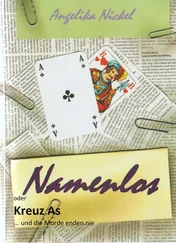He was not there, one soldier explained. Von Steigerwald ordered the soldier to fetch him, and the soldier sprinted up the stair.
When the commandant arrived, he looked tired and a trifle rumpled. Von Steigerwald did his best to salute so as to make it clear that an S.S. colonel outranked any mere general and proffered his orders, reflecting as he did that it might be possible for him to shoot the general and both sentries if the falsity of those orders was detected. Just possible, if he shot very fast indeed. Possible, but not at all likely. The burly sentry with the Schmeisser submachine gun first, the thin one who had run to get the commandant next. Last, the commandant himself. If—
The commandant returned his orders, saying that Herr Churchill was not at his facility.
Sharply, von Steigerwald declared that he had been told otherwise.
The commandant shook his head and repeated politely that Churchill was not there.
Where was he, then?
The commandant did not know.
Who would know?
The commandant shrugged.
The commandant was to return to bed. Von Steigerwald, who would report the entire affair to the Reichsf̈hrer-SS , intended to inspect the facility. His conclusions would be included in his report.
The commandant rose.
Von Steigerwald motioned for him to sit again. He, Standartenf̈hrer von Steigerwald, would guide his own tour.
He would not see everything if he did, the commandant insisted; even in explosive German, the commandant sounded defeated. Sergeant Lohr would show him around. Sergeant Lohr had a flashlight.
Sergeant Lohr was the burly man with the submachine gun.
The prisoners were not held in the tunnels themselves, Lohr explained as he and von Steigerwald walked along a dark track, but in the rolling stock. There were toilets in the cars, which had been railway passenger cars before the war. If the Standartenf̈hrer —
“The cars were squirreled away down here to save them from German bombs,” a new voice said. “The underground had been disabled, but there was sound trackage left, so why not? I take it you understand English, Colonel?”
In the near-darkness of the tunnel, the shadowy figure who had joined them was hardly more than that: a man of medium size, shabbily dressed in clothing too large for him.
“ Ja ,” von Steigerwald replied. “I speak it vell. It is vor dis reason I vas sent. Und you are …?”
For a moment, Lohr’s flashlight played on the shabby man’s face, an emaciated face whose determined jaw jutted above a wattled neck. “Lenny Spencer, Colonel. At your service.”
Lohr grunted—or perhaps, growled.
“I’m a British employee, sir. A civilian employee of your army and, if I may be permitted a trifle of boldness, a man lent to you by His Majesty’s occupation government. Far too many of my German friends speak little English. I interpret for them, sir. I run errands and do such humble work as my German friends judge beneath them. If I can be of any use to you, Colonel, I shall find my happiness in serving you.”
Von Steigerwald stroked his chin. “Dis place you know, ja?”
The shabby man nodded. “Indeed I do, Colonel. Few, if I may say it, know the facility and its prisoners as well as I.”
“Goot. Also you know Herr Churchill. He vas your leader in de var, so it must be so. He ist here. Dis I know. In Berlin he ist wanted, ja? I am to bring him. Show him to me. At vonce!”
The shabby man cowered. “Colonel, I cannot! Not with the best will in the world. He’s gone.”
“So?” Von Steigerwald’s hand had crept to his Luger, lifting the shiny leather holster flap and resting on the ivory grip; he allowed it to remain there. “The truth you must tell now, Herr Schpencer. Odervise it goes hard vit you. He vas here?”
The shabby man nodded vigorously. “He was, Colonel. He was captured in a cellar in Notting Hill. So I’ve been informed, sir. He was brought here to recover from his wounds, or die.”
“He ist dead? Dis you say? Vhy vas not dis reported?” Von Steigerwald felt that he needed a riding crop—a black riding crop with which to tap his polished boots and slash people across the face. Donovan should have thought of it.
“I don’t believe he is dead, Colonel, but he is no longer here.” The shabby man addressed Sergeant Lohr in halting German, asking him to confirm that Churchill was no longer there.
Sullenly, Lohr declared that he had never been there.
“Neider vun I like,” von Steigerwald declared, “but you, Schpencer, I like more petter. He vas here? You see dis?”
“Yes indeed, Colonel.” The shabby man had to trot to keep pace with von Steigerwald’s athletic strides. “He seemed much smaller here. Much less important than he had, you know, on my wireless. He was frightened, too. Very frightened, I would say, just as I would have been myself. Pathetic at times, really. Fearful of his own fear, sir. You know the Yanks’ saying? I confess I found it ironic and somewhat amusing.”
“He ist gone. Zo you say. Who it is dat takes him?”
“I can’t tell you that, Colonel. I wasn’t here when he was taken away.” The shabby man’s tone was properly apologetic. “Sergeant Lohr would know.”
Von Steigerwald asked Lohr, and Lohr insisted that Churchill had never been held in the facility.
This man, von Steigerwald pointed out, says otherwise.
This man, Lohr predicted, would die very soon.
Von Steigerwald’s laughter echoed in the empty tunnel. “He vill shoot you, Schpencer. Better you should go to de camps, ja? Der, you might lif. A Chew you are? Say dis und I vill arrange it.”
“I’d never lie to you, Colonel.”
“Den tell me vhere dese cars are vhere de prisoners stay. Already ve valk far.”
“Just around that bend, Colonel.” The shabby man pointed, and it seemed to von Steigerwald—briefly—that there had been a distinct bulge under his coat, a hand’s breadth above his waist. Whatever that bulge might be, it had been an inch or two to the left of the presumed location of the shabby man’s shirt buttons.
Lohr muttered something, in which von Steigerwald caught “ Riecht wie höllisches … ” Von Steigerwald sniffed.
“It’s the WCs,” the shabby man explained. “They empty onto the tracks. The commandant had the prison cars moved down here to spare our headquarters.”
“In de S.S.,” von Steigerwald told him, “we haf de prisoners clean it up. Dey eat it.”
“No doubt we would.” The shabby man shrugged.
“One becomes accustomed to the odor in time.”
“I vill not. So long as dat I vill not pee here.” Von Steigerwald caught sight of the stationary railroad cars as the three of them rounded the curve in the tunnel. “Every prisoner you show to me, ja? Many times dis man Churchill I haf seen in pictures. I vill know him.”
Lohr muttered something unintelligible.
Von Steigerwald rounded on him, demanding that he repeat it.
Lohr backed hurriedly away as von Steigerwald advanced shouting.
The shabby man tapped von Steigerwald’s shoulder. “May I interpret, Colonel? He says—”
“ Nein! Himself, he tells me.” A competent actor, von Steigerwald shook with apparent rage.
“He said—well, it doesn’t really matter now, does it? There he goes, back to headquarters.”
Von Steigerwald studied the fleeing sergeant’s back. “Ist goot. Him I do not like.”
“Nor I.” The shabby man set off in the opposite direction, toward the prison cars. “May I suggest, Colonel, that we begin at the car in which Churchill was held? It is the most distant of the eight. I can show you where we had him, and from there we can work our way back.”
Читать дальше












